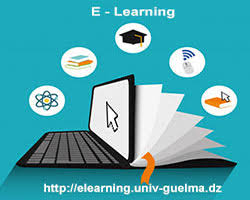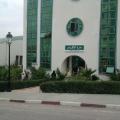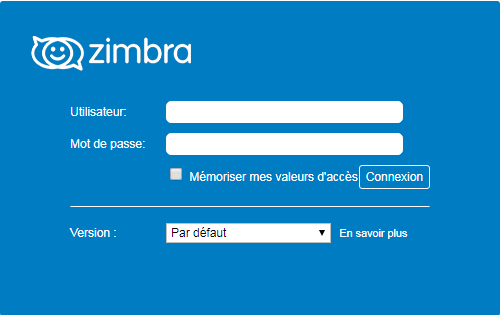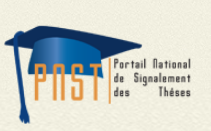Formation
1- English Language
a-Academic Licence
|
Field of Training |
Foreign Letters and Languages |
|
Branch of Study |
English Language |
|
Speciality |
English Language |
|
Degree |
Academic Licence |
1- Training Objectives:
With regard to the Department of Letters and the English Language, the academic Licence degree aims to provide general training for researcher-oriented students. Indeed, this degree is a first step before the Master and the Doctorate.
In terms of Knowledge:
This branch of study aims to consolidate the knowledge of the language of the Anglo-Saxon world, allowing the student to rely on the general field of university knowledge: general linguistics, general literature, knowledge of the historical, economic and political realities of the Anglo-Saxon world.
In terms of know-how:
Ability to formulate scientific reasoning in English, both orally and in writing; know how to inscribe one's thinking in the current field of knowledge and research issues; be trained in the collective dimension of research, by learning about the work undertaken within a research team; training in academic rigor and intellectual judgment allowing a critical distance from one's learning.
2- Targeted Profiles and Competencies:
In terms of professional competence, the student is expected to learn to synthesize information, to communicate the results in a summary document, to explain and defend his point of view, for the benefit of the progress of knowledge. This Licence degree also trains specialists in the didactics of English able to master the methods of teaching this language to nationals or foreigners. The skills induced by the training are transversal skills, analysis of pedagogical practices and situations of teaching, communication and speech management, but also specific skills.
The LMD university system aims to provide training that can guarantee rapid integration into the labour market. In the case of the bachelor's degree in English language, the professional qualifications targeted are:
- Teaching English in the different sectors of national education.
- Teaching of Technical English in national and private companies.
- Fluency in English which allows the exercise of a technical or commercial activity.
- Rapid insertion into the modern communication circuit (media, advertising, Internet)
Download : English Training Brochures
b-Academic Master
|
Field of Training |
Foreign Letters and Languages |
|
Branch of Study |
English Language |
|
Speciality |
Language and Culture |
|
Degree |
Academic Master |
1- Training Objectives:
In Terms of Knowledge:
The aim is to consolidate the knowledge of the language of the Anglo-Saxon world, allowing the student to rely on the general field of university knowledge: general linguistics, general literature, knowledge of the historical, economic and political realities of the Anglo-Saxon world.
In terms of know-how:
Provide students with the ability to formulate scientific reasoning, both orally and in writing, in English; know how to inscribe one's thinking in the current field of knowledge and research issues; be trained in the collective dimension of research, by learning about the work undertaken within a research team; writing research paper, through the obligation to write a dissertation in M2; training in academic rigour and intellectual judgment allowing a critical distance from one's research object.
2- Profiles, Skills and Occupations Targeted:
In terms of professional competence, the student learns to synthesize information, to communicate the results in a summary document, to explain and defend his point of view, for the benefit of the progress of knowledge. The dissertation thus produced must constitute an original contribution within the framework of the discipline. This Master also trains specialists in the didactics of English (teachers) able to master the methods of teaching this language to nationals or foreigners. The skills induced by the training are transversal skills, analysis of pedagogical practices and situations of teaching, communication and speech management, but also specific skills.
3- Regional and National Employability Potentialities of Graduates:
This master's degree in the language and culture of the English-speaking world provides students with the opportunity to exercise the function of teacher (middle and secondary schools, embassies, cultural centers ...), in charge of communication, that of trainer and offers them the opportunity to join other functions or training with a penchant for English as a Foreign Language; such as tourism industry and many other sectors.
Download : English Training Brochures
2-French Language
a-Academic Licence
1- Training Objectives:
This training provides the necessary tools for those who are destined later for professorship, at the primary, intermediate or secondary levels, and/or research in French language and literature.
The organization of courses and assignments responds to a twofold requirement: to link the approach to texts to diversified methods of analysis, likely to shed new light on the anchoring of literature in creation, culture and history; Subjecting methods to critical reflection, confronting them with knowledge or invention from the works themselves, so as to recognize literature's own capacity to explore new areas of experience or to shift our relationship to knowledge.
In addition, an open interdisciplinary with the human sciences will be developed either by teaching specific to these departments, or by diversified associations with courses offered in other departments. This interdisciplinary openness will also make it possible to forge links with foreign literatures and general literature, and to experiment with linguistic and literary practices using computer science.
This training also ensures quality training by taking charge of the satisfaction of the legitimate social demand for access to higher education by taking into consideration the following points:
- It provides knowledge of the concepts and techniques used in the field of foreign language teaching to better adapt to professional life.
- Upgrading of higher education in Algeria with the level reached in developed countries.
- Develop the student's French language proficiency skills.
- Ability to write in French. Knowledge of the culture (literature, history, civilization,...) of the France. Ability to analyze the language scientifically.
2- Targeted Profiles and Skills:
The skills targeted by this training offer are baccalaureate holders wishing to open up to learning the French language and literature.
Download : French Training Brochures
B- Academic Master
|
Field of Training |
Foreign Letters and Languages |
|
Branch of Study |
French Language |
|
Speciality |
Didactics and Applied Languages |
|
Type de Diplôme |
Academic Master |
1- Training Objectives:
In Terms of Knowledge:
This training offer aims to grant French-speaking students, on the one hand, professional opportunities in and outside the recruitment tests of the National Education. In addition, it aims to offer teachers and future teachers methodological tools from research in language acquisition and cognition to better analyze the needs of their audiences. Finally, it intends to train researchers in the field of didactics of French as a Foreign Language and other disciplines concerned by French as a Foreign Language and French as a Second Language.
2- Profiles, skills and occupations targeted:
The first year of the French as a Foreign Language master aims to provide in-depth training in the major fields concerned with the didactics of the French language as a foreign language, and its pragma-linguistic and psycholinguistic foundations.
The second year of the master's degree is, essentially, oriented towards the development of professional skills in the field of French as a Foreign Language teaching.
3- Regional and national employability potentialities of graduates:
The didactic master's degree in French as a Foreign Language offers students the opportunity to practice the profession of teacher, that of trainer and also offers them the opportunity to integrate other professions or training courses with French as a Foreign Language appeal such as the tourism industry and many other sectors.














